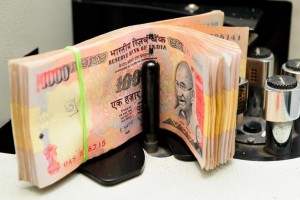CBDT procedure for launching prosecution for TDS-TCS default

In order to identify the cases of default in TDS/TCS and for the procedure for launching prosecution and the time frame for the completion of the whole process, the Standard Operating Procedure has been set in a systematic manner. A detailed explanation is given in the SOP about the role of different TDS authorities in addressing the issue of prosecution and compounding of TDS cases.
1. STANDARD OPERATING PROCEDURE FOR PROSECUTION IN CASES OF TDS-TCS DEFAULT
Violation of IT Act by not depositing the deducted TDS/TCS within the prescribed due date are punishable under section 276B/276BB or 278A. CBDT has modified the instruction F.no: 285/90/2008-IT (Inv) for the selection of cases and their processing vide F.No:285/90/2013-IT (Inv) dated 07.02.2013.
The specified monetary limit for cases to be considered for prosecution is as follows:
- Cases in which the tax deducted is Rs.1,00,000/- or more and the deducted amount is not deposited by the prescribed date under the IT Act 1961, read with the IT rules 1962, is mandatory to be processed for prosecution in addition to the recovery.
- Cases in which the tax deducted is between Rs. 25,000/- and Rs.1,00,000/- and the deducted tax is not deposited by the prescribed due date under the IT Act 1961, read with the Income Tax rules 1962, may be processed for prosecution depending upon the facts and circumstances of the case. For instance, there are certain cases of repeated defaults and or tax has not been deposited till detection.
Therefore the present instructions foresee two categories for prosecution in TDS related offences: 1) The first category is cases that are mandatory for prosecution for the cases against TDS of more than Rs. 1, 00,000/- deducted but not deposited before due date; and 2) the second category is cases that are mandatory for prosecution for the cases of default between Rs. 25,000/- to Rs. 1, 00,000/- which may be processed based on facts and circumstances of the cases.
How to identify prosecutable cases
The list of prosecutable cases for mandatory processing for prosecution in (List A) accordance with the criteria laid down by the CBDT vide its’ instruction dated 07.02.2013 can be can be generated from CPC -TDS/TRACES or any other revised criteria, if the same is done in view of suggestions made in this regard. Within one month of the filing of the quarterly TDS statement, such identification can be done.
The following two parameters have been adapted for identifying prosecutable cases for mandatory processing by CPC-TDS based on the instruction dated 07.03.2013 vide F.no: CPC (TDS)/Prose_cases/2014-15 dated 15.09.2014 limit of Rs. 1,00,000/-
- Such cases where interest on late payment had not been paid completely or not paid at all till that particular date
- Deduction had already been made but challan was not available in the account of the deductor; that means the amount was not at all deposited in the government account.
Defaulters list of cases involving delay in payment
A separate list will be generated by CPC-TDS against the cases (List-B) involving defaults of delay in payment of Rs. 25,000/- to Rs.1,00,000/- along with defaulters list as well as previous year and following year based on the availability of details within one month of the filing of the quarterly TDS statement.
Such list will help AO (TDS) to identify cases suitable for prosecution based on facts and circumstances of the case. The cases can be identified by the AO (TDS) from the second list and from the information gathered from external sources in order to complete identification of second category of cases and enter them in prosecution register maintained manually.